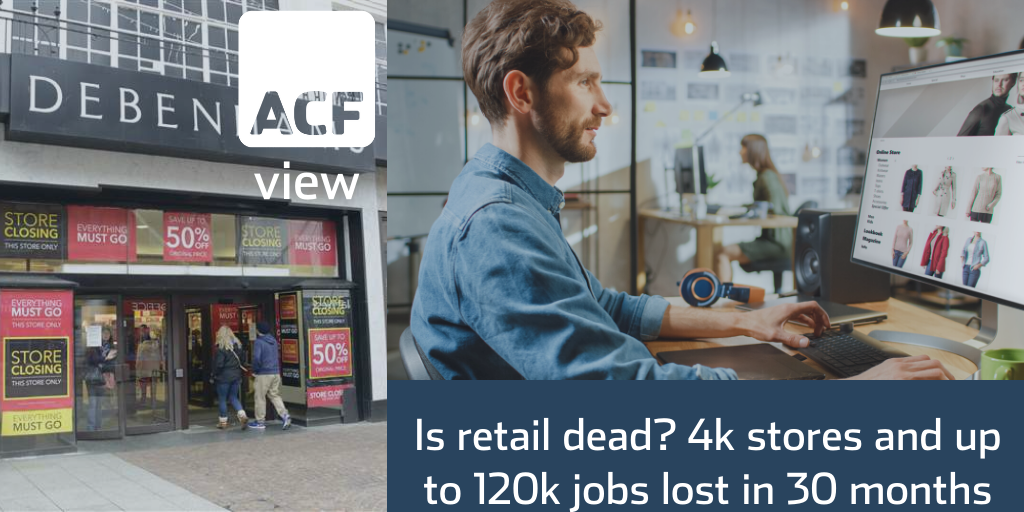Is retail dead? 4,000 stores and up to 120,000 jobs lost in less than 30 months
While the apparent death of Debenhams this week and the demise of Primark and its 189 sweatshop fed stores a couple of weeks ago may not bring a tear to many – it is not the coronavirus crisis that killed them – their downfall started 10 years ago.
Nevertheless, the impact of Covid-19 should not be underestimated. We anticipate that the UK economy will contract as demand and supply shocks force businesses to close their doors. The government’s attempt to mitigate the financial consequences of coronavirus and Covid-19 will only slow-down the inevitable for high street retail.
The UK, and possibly the Global economy, has entered into the psychology of a bear market and many believe recession is unavoidable. However, how deep or shallow and how quickly or slowly the economy will recover is a matter of continued conjecture.
What we think is clear, is that the retail sector will be particularly and permanently hard hit (along with hospitality). For retail, the potential outcome will be an accelerated round of limb surgery for those that are neither boutique nor online experts. The silver lining is that retailers with a strong online presence are likely to survive and thrive, whereas chain businesses that depend predominantly on bricks and mortar outlets and don’t have their online presence right, face extinction.
The list of high street names since the beginning of 2018, both large and small, that have disappeared or been forced into administration or CVA, after failing to find buyers or fresh investment cash, passed through the hundred barrier by 5th of April 2020. This list equates to a potential closure of over 4,000 stores and the possible final loss of 120k jobs in less than 30 months. These are not insignificant numbers in any industry.
On Monday, Debenhams, once the country’s biggest department store group, looked set to disappear in the form that we currently know it in the UK, i.e. a predominantly high street bricks and mortar business.
The upside is that the Debenhams brand will continue as an online brand, but probably without a physical high street presence. We observed much the same trend in the US pay-day loans and small consumer loans market, which used to be a personal relationship, shop front market, it has moved online where the model survives. This could be the saving grace for UK retail brands, but only if their online game remains good and their brand has significant presence.
Covid (C19) has accelerated the death of bricks and mortar retail and the shift to online, but it is not the underlying driver.
There will, in our view, always be space for boutiques, hyper-local convenience stores and destination brands such as Selfridges and Liberty in a bricks and mortar sense and perhaps for those with a vast shop frontage and high quality brand values such as John Lewis, but for anything in the middle, it is probably over…much like integrated investment banking.












